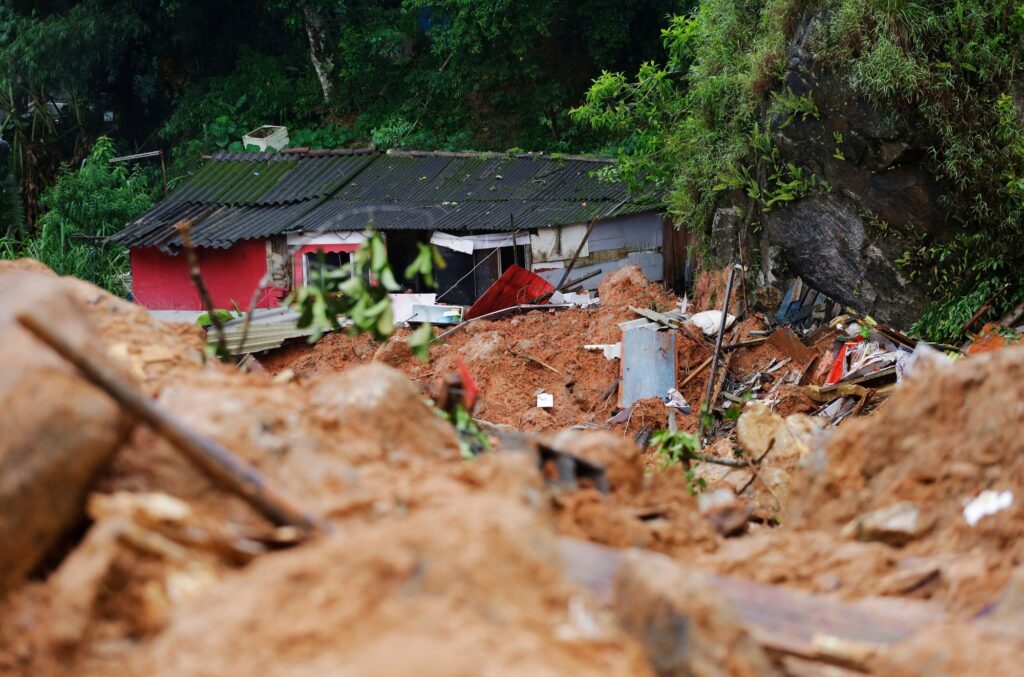In a study recently published in BMJ Open , researchers assessed how disruptions to infrastructure and reduced access to health services due to extreme weather events affect maternal health in resource-poor areas of low- and middle-income countries.
The study highlights the limited research available on this issue and the need for more extensive research into the mechanisms by which extreme weather events affect maternal health in low-income areas.
 Study: Extreme weather and maternal health in low- and middle-income countries: a scoping review. Image credit: Nelson Antoine/Shutterstock.com
Study: Extreme weather and maternal health in low- and middle-income countries: a scoping review. Image credit: Nelson Antoine/Shutterstock.com
background
The World Health Organization (WHO) defines maternal health as a woman's mental and physical well-being throughout pregnancy, childbirth and the postpartum period. Optimal maternal health is closely linked to the health of her infant.
However, despite the fact that reducing maternal mortality is one of the targets of the United Nations Sustainable Development Goals, poor maternal health has many other dimensions than just mortality.
Poor maternal health also affects the health of the baby, including high blood pressure, infections and obstructions during birth. Mental health problems, including increased maternal stress, are associated with spontaneous abortions and low birth weight and poor growth in babies.
Maternal health can also be affected by environmental conditions, such as extreme weather events, that damage infrastructure and limit access to health care.
About the Research
In this review, researchers aimed to understand how disruptions to infrastructure and limited access to health services caused by extreme weather events affect maternal health in low- and middle-income countries.
Previous studies have examined the impacts of extreme weather events, such as extreme heat and floods, on maternal and child health in a range of low-, middle- and high-income settings, but the focus of these studies has been on birth outcomes, not maternal health.
The researchers conducted this review to fill a knowledge gap regarding current assessments of how extreme weather events, such as floods, extreme temperatures, hurricanes and fires, affect maternal health during pregnancy and after birth in low- and middle-income countries.
In this study, extreme weather was defined as weather variations that were not characteristic of typical thresholds for the geographical region, and the definition of maternal health was aligned with that of the WHO, covering maternal health during pregnancy, birth, and up to 6 weeks postpartum.
Extreme weather events considered for exposure in this review included tropical storms, floods, droughts and extreme heat.
Findings included a range of conditions that fall under the umbrella term maternal health, including gestational diabetes, pre-eclampsia, access to maternal health services, postpartum hemorrhage and malnutrition.
This review only included studies about the effects of extreme weather on women's health during pregnancy or after birth. Studies about geological phenomena such as tsunamis, earthquakes or volcanic eruptions were excluded. Studies that only investigated infant or child health were also excluded. This review did not include policy or opinion articles or studies based in high-income countries.
result
Findings from the study showed that extreme weather events limited access to health services, caused stress and mortality, and negatively impacted maternal physical and mental health.
A total of 15 studies were included in the review, of which four were quantitative and the rest were qualitative. Quantitative studies showed that disruptions caused by extreme weather limited access to maternal and child health services, which had a negative impact on both mothers' mental and physical health.
The results of the qualitative study, including women's perceptions and lived experiences, supported the findings of the quantitative study.
The four main outcomes that were consistent across quantitative and qualitative studies were problems accessing maternal and child health services, malnutrition, stress, and mortality.
However, the review found that there is limited evidence on the impact of extreme weather events on maternal health in low-income countries. Many of these studies have been conducted in middle- and low-income countries, but have not looked at outcomes such as stress in pregnant women living in high-income countries.
The researchers believe that these findings cannot be generalized to mothers in low- and middle-income areas, due to the large differences in infrastructure and post-disaster support between high-income and low- and middle-income areas.
Conclusion
Overall, the study found that extreme weather events have a negative impact on maternal health, particularly physical and mental health aspects such as stress, malnutrition, access to maternal health services, and mortality.
However, evidence from middle- and low-income areas is lacking, and further research is needed to understand how resource scarcity exacerbates these problems.



